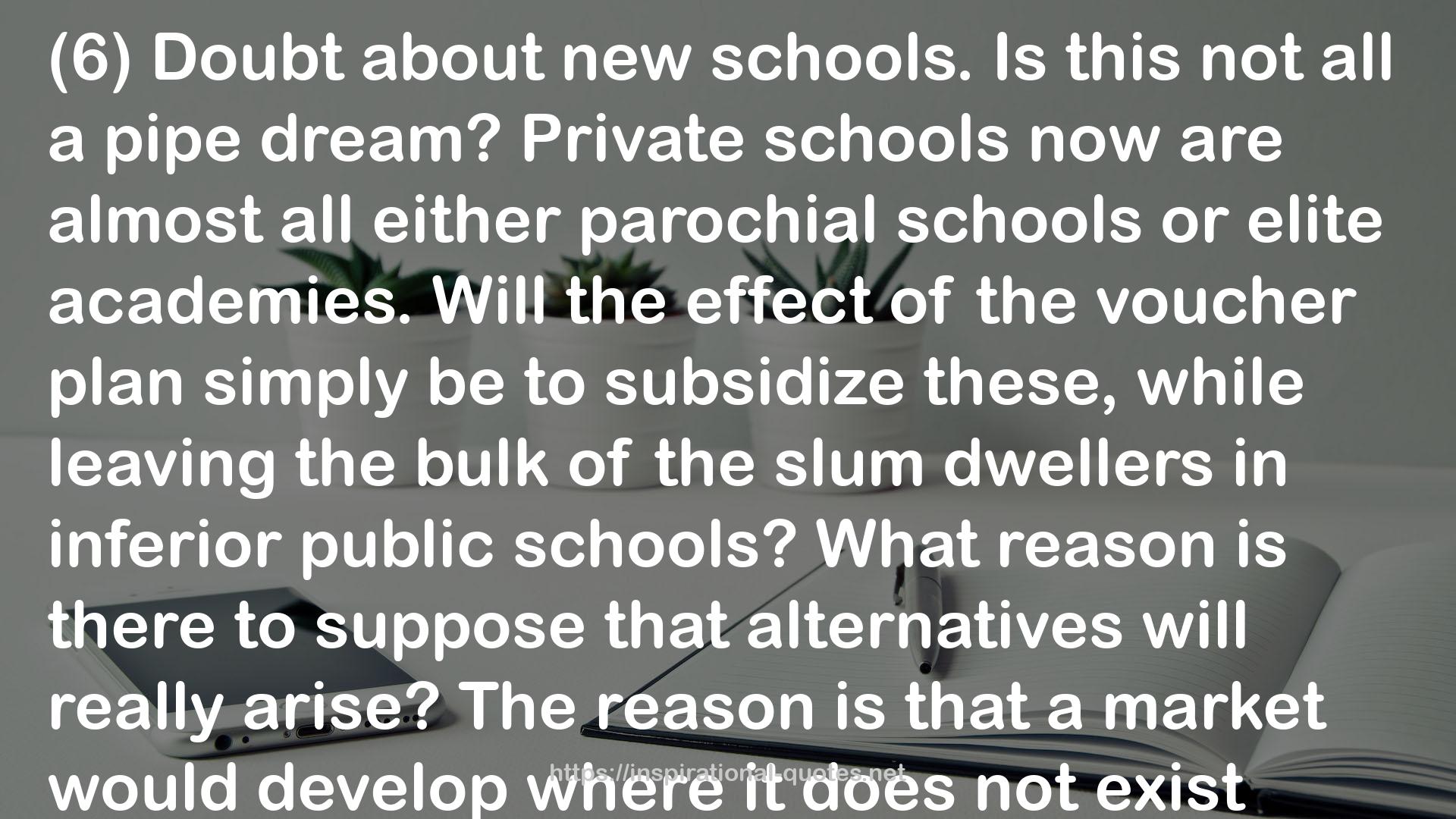" (6) Doubt about new schools. Is this not all a pipe dream? Private schools now are almost all either parochial schools or elite academies. Will the effect of the voucher plan simply be to subsidize these, while leaving the bulk of the slum dwellers in inferior public schools? What reason is there to suppose that alternatives will really arise? The reason is that a market would develop where it does not exist today. Cities, states, and the federal government today spend close to $100 billion a year on elementary and secondary schools. That sum is a third larger than the total amount spent annually in restaurants and bars for food and liquor. The smaller sum surely provides an ample variety of restaurants and bars for people in every class and place. The larger sum, or even a fraction of it, would provide an ample variety of schools. It would open a vast market that could attract many entrants, both from public schools and from other occupations. In the course of talking to various groups about vouchers, we have been impressed by the number of persons who said something like, "I have always wanted to teach [or run a school] but I couldn't stand the educational bureaucracy, red tape, and general ossification of the public schools. Under your plan, I'd like to try my hand at starting a school." Many of the new schools would be established by nonprofit groups. Others would be established for profit. There is no way of predicting the ultimate composition of the school industry. That would be determined by competition. The one prediction that can be made is that only those schools that satisfy their customers will survive—just as only those restaurants and bars that satisfy their customers survive. Competition would see to that. "
― Milton Friedman , Free to Choose: A Personal Statement
